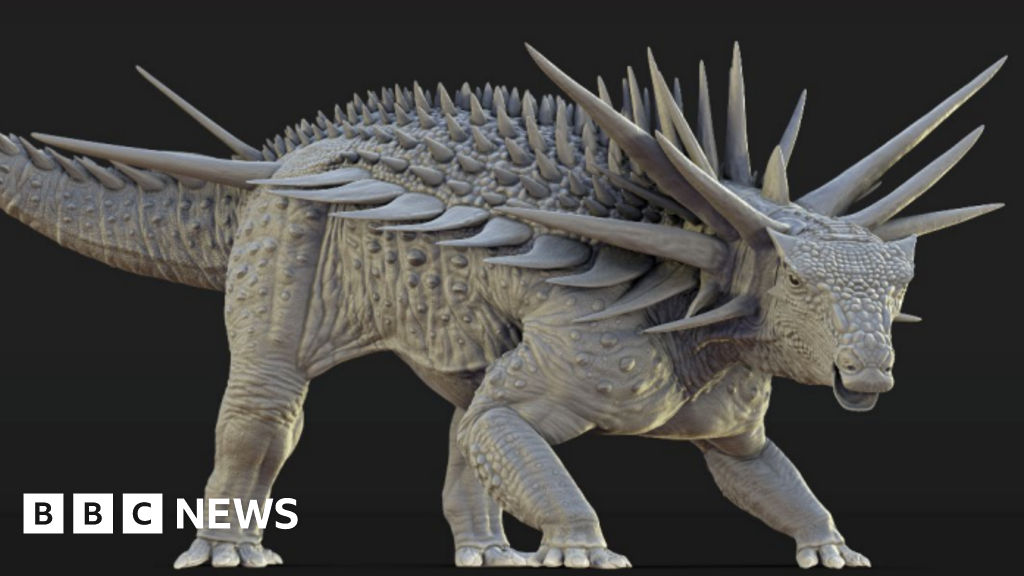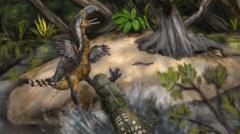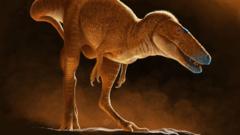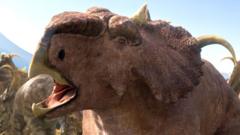Scientists have unearthed Australia's oldest known crocodile eggshells which may have belonged to drop crocs - creatures that climbed trees to hunt prey below.
The discovery of the 55-million-year-old eggshells was made in a sheep farmer's backyard in Queensland, with the findings published in the Journal of Vertebrate Paleontology.
The eggshells belonged to a long-extinct group of crocodiles known as mekosuchines, who lived in inland waters when Australia was part of Antarctica and South America.
Co-author Prof Michael Archer said drop crocs were a bizarre idea but some were perhaps hunting like leopards - dropping out of trees on any unsuspecting thing they fancied for dinner.
Prof Archer, a palaeontologist at the University of New South Wales, noted that mekosuchine crocodiles could grow to about five meters and were plentiful 55 million years ago, long before the arrival of their modern relatives in Australia.
Although these eggshells were discovered decades ago, they were only recently analyzed with help from scientists in Spain. Prof Archer remarked that this peculiar concept of drop crocs likely relates to their adaptation as terrestrial hunters in forests.
Interestingly, earlier discoveries of mekosuchine fossils, including some found in 25-million-year-old deposits in Queensland, suggested that some of these creatures were partially tree-dwelling.
Since the early 1980s, Prof Archer has been excavating a clay pit in Murgon, known as one of Australia's oldest fossil sites surrounded by lush forests that once flourished.
This forest has also yielded evidence of the world's oldest songbirds, Australia's earliest frogs and snakes, various small mammals associated with South America, and the oldest bats known to science.
The site has continuously surprised researchers, holding many prehistoric treasures just waiting to be excavated.
















